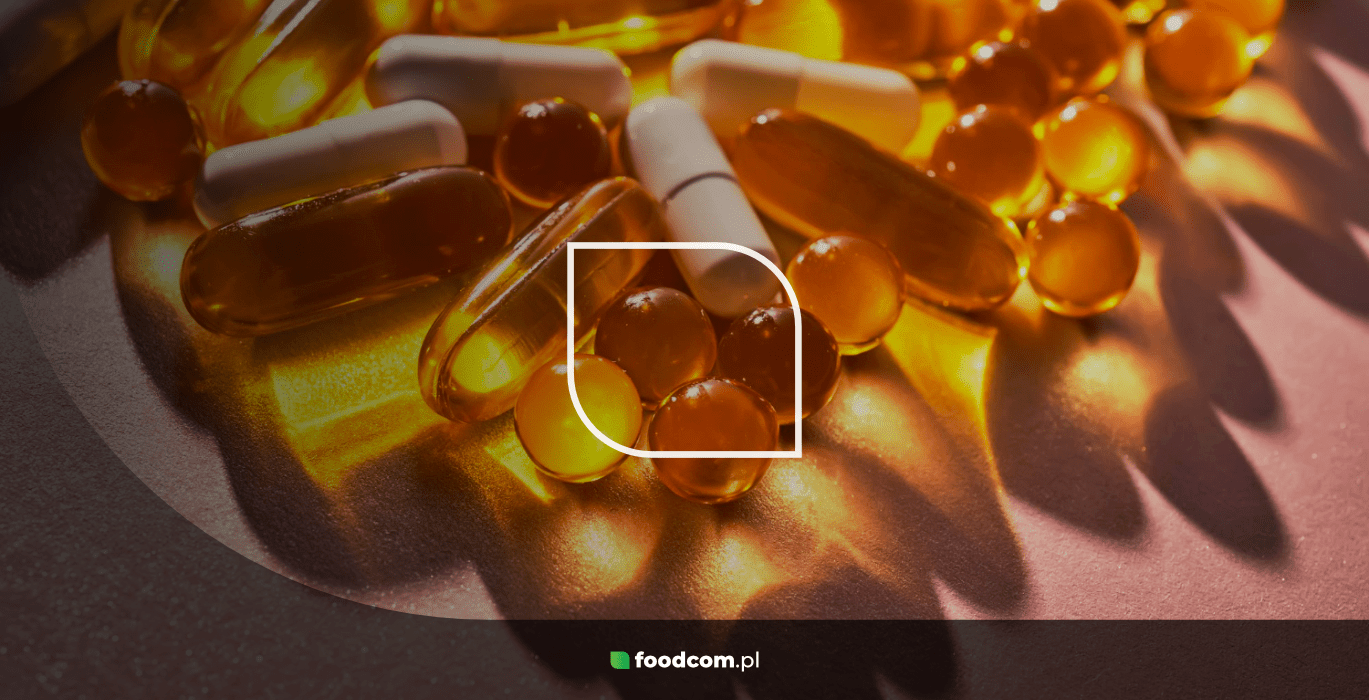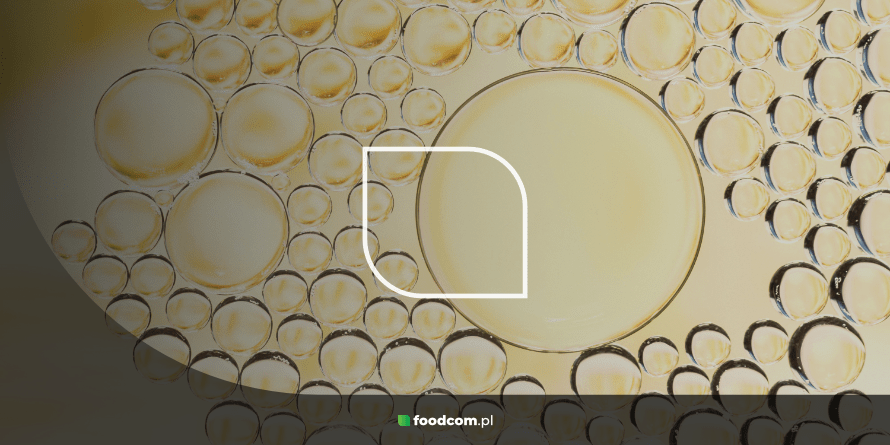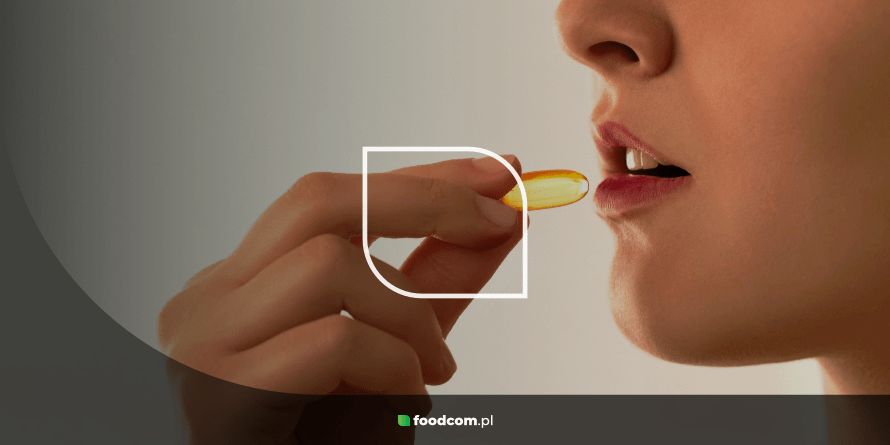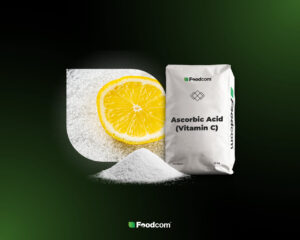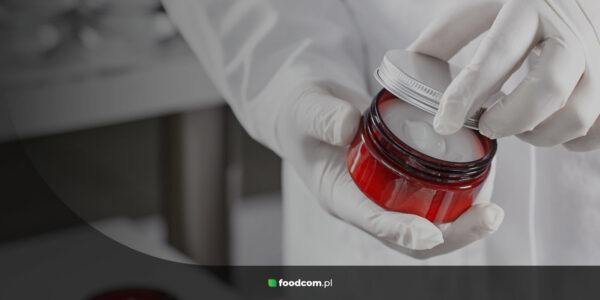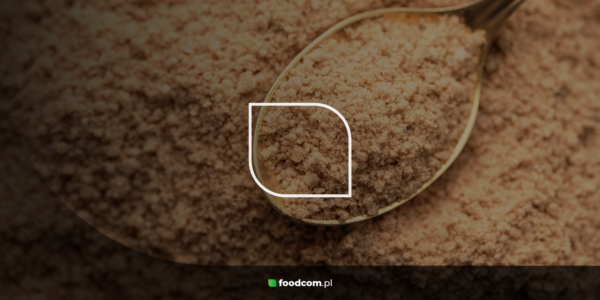- Coenzyme Q10 is a natural compound essential for the proper functioning of the body’s cells and energy production.
- It supports the heart and immune system, delays the ageing process and aids the body’s regeneration.
- In industrial applications, it is found in dietary supplements, cosmetics and pharmaceuticals.
- The demand for Q10 is growing worldwide as interest in natural supplements increases.
Coenzyme Q10 is a chemical compound present in every cell of the human body. For years, it has been used in medicine, pharmacy, cosmetology and in the dietary supplement sector. The dynamically developing market for natural supplements and health-promoting trends are making Q10 increasingly popular with both individual consumers and B2B companies.
What is coenzyme Q10?
Coenzyme Q10 plays an important role in the production of cellular energy – without it, the proper functioning of the body would not be possible. It is a lipid compound present in mitochondria – the specific ‘power plants’ of cells. Its main function is to participate in electron transport and cellular respiration processes, leading to the production of ATP, the basic unit of energy for the body.
The natural production of Q10 declines with age, which explains its particular popularity in supplements aimed at people over 30. In the context of B2B, it is important to note that coenzyme Q10 comes in two forms – ubiquinone (oxidised form) and ubiquinol (reduced form). Ubiquinol is considered to be the compound with better bioavailability, but it is also more expensive to produce. The choice of form depends on the target group and the final use of the product.
Health-promoting properties of coenzyme Q10
The most important health-promoting properties of coenzyme Q10 include:
- cardiac support – this ingredient improves cardiac muscle function and supports the treatment of cardiovascular diseases;
- energy production – Q10 increases the body’s performance, which is particularly appreciated by athletes and physically active people;
- antioxidant action – neutralises free radicals, protecting cells from oxidative stress;
- immunity – supports the immune system, especially during periods of reduced immunity.
Where is coenzyme Q10 used?
As we age, the level of Q10 in the body decreases by up to 50%. This results in a weakening of muscle function, a decrease in energy and a deterioration in skin condition. For this reason, Q10 has become one of the key ingredients in anti-ageing supplements and cosmetics, as well as preparations aimed at regenerating the body. It is used in supplements, cosmetics and pharmaceuticals alike.
Dietary supplements
Coenzyme Q10 is one of the most commonly chosen ingredients in energy and fitness support preparations. It is used in tablets, gel capsules and liquid forms. Its popularity is due to its universal effect – it supports energy production, improves the overall condition of the body and supports regeneration processes. Coenzyme Q10 preparations are often chosen by people exposed to chronic stress, intensive physical activity or age-related decline in performance.
Cosmetics
Thanks to its antioxidant properties, Q10 neutralises free radicals and slows down the skin’s ageing process, improving its firmness and elasticity and reducing signs of fatigue and the appearance of fine lines.
In the cosmetics industry, coenzyme Q10 is recognised as one of the key ingredients in anti-aging preparations. It is often combined with other substances with similar effects, such as collagen, hyaluronic acid or vitamin E. We find coenzyme Q10 in cosmetics such as day and night face creams, serums and masks.
Pharmacy
Coenzyme Q10 is a valuable ingredient with the potential to support pharmacological therapies for a variety of conditions, complementing standard therapies, especially in the areas of cardiology and neurology. Studies indicate that Q10 supplementation can support the health of patients with heart failure, improving their wellbeing and quality of life. The ingredient is also being studied in the context of Parkinson’s disease and other neurodegenerative conditions.
Coenzyme Q10 and the combination with other ingredients
The synergy of coenzyme Q10 with other substances plays a huge role in the composition of effective formulations. In supplements, it is often combined with other functional ingredients to enhance its effectiveness.
In supplements and cosmetics, it is common to find combinations with vitamins E and C and omega-3 fatty acids to boost immunity and protect against oxidative stress. It is also combined with sulphur compounds – for example, the action of MSM can enhance the regenerative properties of coenzyme Q10, particularly for joints and muscles. Collagen is also used in formulations aimed at improving skin condition and delaying the ageing process. Find out more about what collagen is.
Q10 on the market – trends and growth prospects
The coenzyme Q10 market is growing rapidly, driven by increasing demand. According to industry analysis, increasing consumer awareness of healthy lifestyles and ageing populations and the growing popularity of premium supplements are driving a steady increase in demand for this ingredient.
From a B2B perspective, it is important to ensure high bioavailability of the raw material and stability in combination with other ingredients, which is something to look out for when selecting a supplier. Transparency of the supply chain – certificates of quality or origin of raw materials – and its stability are also important.
Coenzyme Q10 is an ingredient with enormous potential. The ingredient’s health-promoting, antioxidant and regenerative properties make it a great fit with the global trend towards health, energy and a youthful appearance. For business, this means growing opportunities to develop products that meet the needs of consumers seeking natural and effective solutions.


